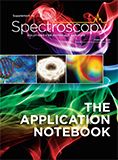QTRam for Content Uniformity Analysis of Low-Dose Pharmaceutical Tablets

Traditional wet chemistry methods, such as titration or high performance liquid chromatography (HPLC), require complete dissolution of the tablets in suitable solvents, which destroy the samples, create waste, and can be labor intensive and time consuming. Vibrational spectroscopic techniques, notably near-infrared (NIR) absorption and Raman scattering, are nondestructive, fast, and require no consumables. Transmission Raman spectroscopy (TRS) is particularly promising, due to its ability to sample a large portion of the sample’s volume.
QTRam is a compact transmission Raman analyzer designed specifically for content uniformity analysis of pharmaceuticals in solid dosage forms. In this note, we use a model drug, acetaminophen, to demonstrate the capability of QTRam to quantify low concentrations of API in compressed tablets.
Data Collection
QTRam is used to measure transmission Raman spectra of the uncoated tablets. The interrogated sample area is 4 mm in diameter as set by the excitation and collection apertures. BWAnalyst®, the 21 CFR pt 11 compliant software for QTRam, is used to collect all spectra. Each spectrum is an average of 10 scans, and each scan takes 3 s. Two or three spectra were acquired from each tablet sample.
Experimental and Results
Acetaminophen, also known as paracetamol and APAP, is chosen as a model API in this study, due to its availability and low toxicity. We target a hypothetical formulation of 1.5 mg API in a 300 mg tablet, for example, 0.5% APAP w/w. Nine blends were prepared, consisting of APAP, mannitol, silicified microcrystalline cellulose (MCC), croscarmellose, and magnesium stearate (MgSt). The blended powders are compressed into round tablets of 10 mm diameter and 3.0 mm thickness, each weighing roughly 300 mg.
Chemometrics
For quantification, partial least squares (PLS) regression models are built using B&W Tek’s chemometric software BWIQ®. Assuming the API is distributed uniformly in the scale of the interrogated volume, we use the blend concentration as the reference for the individual tablets. Eight tablets are used from each blend, which should reduce the calibration error caused by unideal uniformity by way of averaging.
Conclusion
The QTRam is capable of fast and accurate analysis for content uniformity of low-dose pharmaceutical tablets.
B&W Tek
19 Shea Way, Newark, DE 19713
tel. (302) 368-7824
Website: www.bwtek.com

New Study Reveals Insights into Phenol’s Behavior in Ice
April 16th 2025A new study published in Spectrochimica Acta Part A by Dominik Heger and colleagues at Masaryk University reveals that phenol's photophysical properties change significantly when frozen, potentially enabling its breakdown by sunlight in icy environments.
Advanced Raman Spectroscopy Method Boosts Precision in Drug Component Detection
April 7th 2025Researchers in China have developed a rapid, non-destructive Raman spectroscopy method that accurately detects active components in complex drug formulations by combining advanced algorithms to eliminate noise and fluorescence interference.